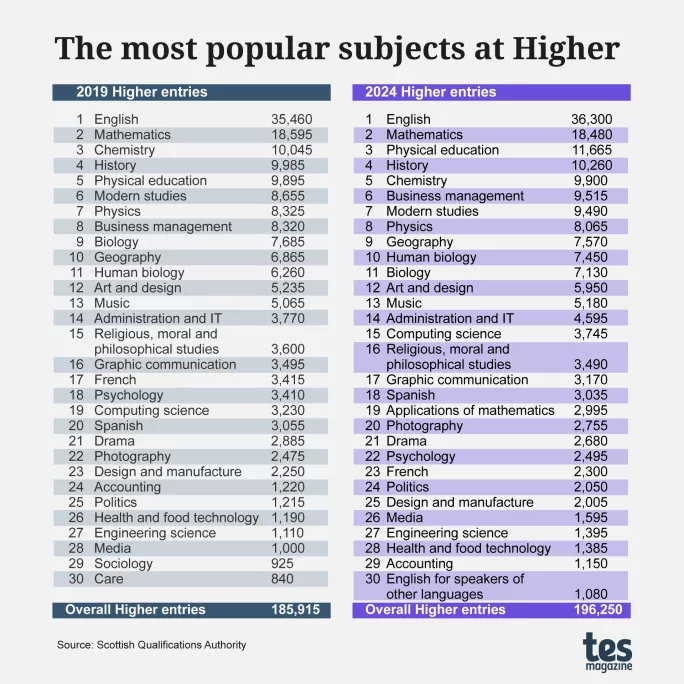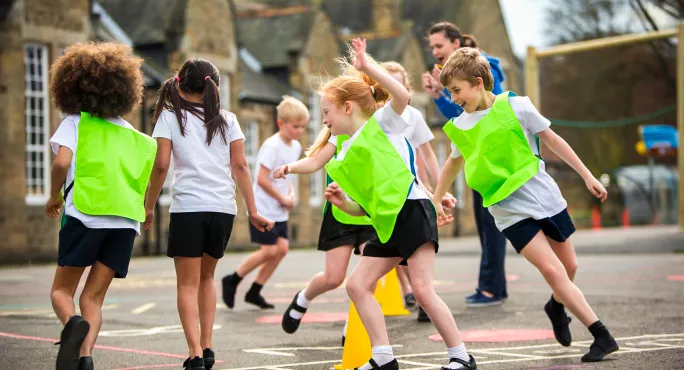There’s no mistaking when you’re amid PE teachers. Just before 9am in Larbert High School last Saturday, as dozens of them got energy boosts from the brunch bars and fruit juices provided, the room looked very different from other teacher conferences.
There was a sea of Adidas, Nike and North Face - no ties, chinos or button-up shirts here. One speaker laughed that PE teachers knew they’d be judged by students on the quality of their “gutties”.
PE is riding high in Scotland. Only maths and English now attract more candidates at Higher - there were 11,665 entries to the PE Higher in 2024 - and it is the fifth-most popular subject at National 5, although it has been overtaken at N5 by another subject whose popularity has surged, applications of maths.
‘We serve our learners exceptionally well’
Delegates at the annual conference of the Scottish Association of Teachers of PE (SATPE) - some of whom had travelled from several hours away - heard that 47.6 per cent of students got an A grade at N5 in 2024. For comparison, this is the proportion receiving As in the other four most popular Highers: English, 37.1 per cent; maths, 39.8 per cent; biology, 28 per cent; applications of maths, 25.6 per cent; the average across all subjects was 38 per cent.
“That’s a phenomenal achievement - we serve our learners exceptionally well,” as one speaker put it to the assembled PE teachers.
Meanwhile at Higher in 2024, some 27.2 per cent of PE entries resulted in an A grade, compared with an average across all subjects at Higher of 30.3 per cent.
Yet, for all the energy in the room at the Falkirk school last Saturday, there were some concerns about PE that continue to bubble away.
The inconsistent quality of primary PE was raised, with concerns fuelled by the apparent unwillingness of most local authorities to retain primary PE specialists.
Anecdotal evidence consistently suggests that S1s’ core skills are not what they used to be: put simply, throw a ball at a 12-year-old now and they are less likely to catch it than their predecessors in years gone by. Covid-19 was mooted as a factor, but the underlying issues, it was suggested, predate the pandemic.

Meanwhile, excitement around the number of students taking PE qualifications is tempered by the gender imbalance in entries. Scottish Qualifications Authority data shows that, at both National 5 and Higher, 31 per cent of entries are from female students.
I also heard concerns that PE still faces a battle to consign to the past prejudices that it has faced for generations - that it is an easy option, that it is an adjunct to a school’s main priorities.
Need for clearer view of health and wellbeing
Yes, PE sits squarely within health and wellbeing (HWB) - dovetailing with other traditionally marginalised curricular areas such as home economics and personal and social education - and HWB “is being pulled to the front” of Scottish education by a string of influential reports, such as Hayward, Withers, Morgan and the National Discussion.
But this notional importance does not always translate into practice. As one speaker put it: “There’s not a clear understanding of what the HWB curriculum is”.
Nevertheless, the SATPE conference projected confidence and left the impression of a subject still on a positive trajectory; PE teachers came across as a determined group who love their subject and are relishing a centrality in school life that was not always the case in times gone by.
One of the keynote speakers, former Scotland rugby international Craig Joiner, gave advice for pupils hoping to excel in sport - but it could just as well be applied to PE teachers who have long had to battle for their subject to be taken seriously: “Persistence wins over skill in the long run.”
For the latest in Scottish education delivered directly to your inbox, sign up for Tes’ The Week in Scotland newsletter





